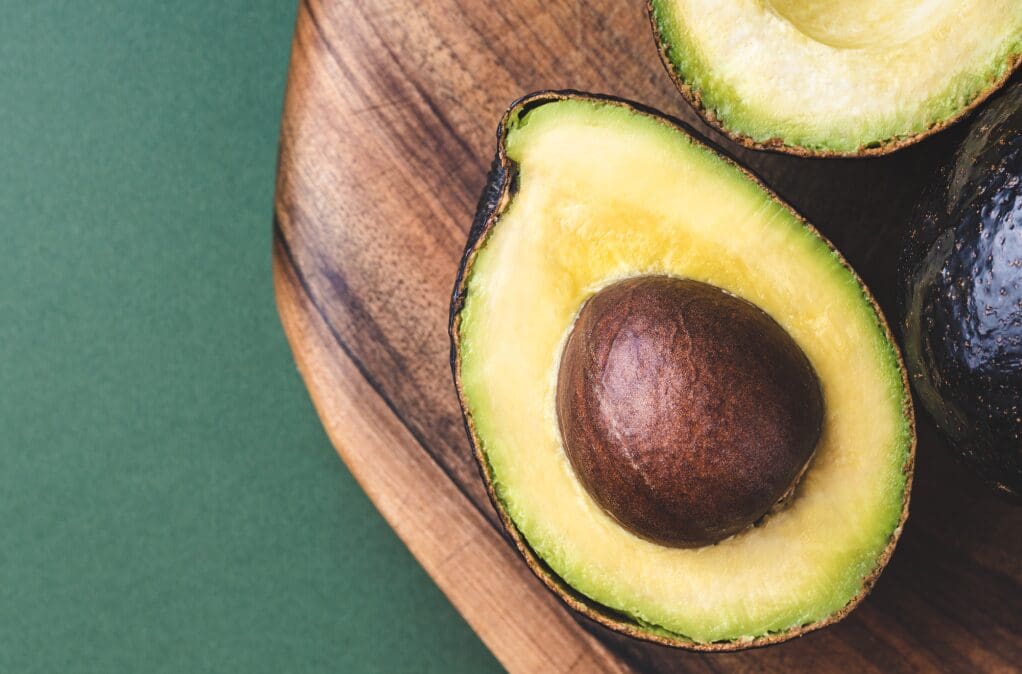A good diet is always part of a healthy lifestyle, but making wise food choices is critical for millions of people living with one of the serious medical conditions known as autoimmune diseases. Doctors have learned a great deal about this category of illnesses in the century since they were first diagnosed, but many key questions are still unanswered. A wide variety of treatment plans have been developed to deal with specific diseases and the symptoms they cause, and following a healthful dietary regimen is a big part of many of those plans. [This article, “The Best Foods For Controlling Autoimmune Disease: What You Eat Can Make A Big Difference” was originally published in News7Health]
What are autoimmune diseases?
Autoimmune diseases are caused by the immune system attacking various parts of the body instead of protecting them. Scientists have been unable to find a clear answer as to why these attacks occur, but it appears that the immune system becomes unable to distinguish between normal healthy tissue and invading disease cells. This failure causes the body to produce antibodies or certain types of white blood cells that damage normal cells.
Doctors have so far identified more than 100 autoimmune diseases and classified them by the organs and tissues being attacked. Some of the most common autoimmune diseases are:
Diseases of the joints and muscles
Lupus
Psoriatic arthritis
Rheumatoid arthritis
Diseases of the nervous system
Multiple sclerosis
Guillain-Barre syndrome
Diseases of the skin
Dermatomyositis
Psoriasis
Diseases of the digestive tract
Celiac disease
Crohn’s disease
Ulcerative colitis
Diseases of the endocrine system:
Addison’s disease
Graves’ disease
Other diseases
Pernicious anemia
Myasthenia gravis
Type 1 diabetes.
Vasculitis
Figuring out which of the autoimmune diseases that a patient has can be difficult because the effects of these diseases are similar to those of other disorders. They cause a variety of symptoms including aches, pain, fatigue nausea, dizziness, rashes and more. Autoimmune diseases are fairly common, with about 1 in every 15 Americans affected by one or more of them. Although they can affect anyone, about 75 percent of the people who have been diagnosed with one of these diseases are women. Autoimmune diseases are among the top 10 causes of death for women in the United States, and some authorities are working to have autoimmune diseases listed as a major health crisis for women worldwide.
More detailed information about the effects of autoimmune diseases on the human body can be found on these sites:
WebMD: Fighting Mysterious Disease
Autoimmune.org: About Autoimmunity
Cleveland Clinic: Autoimmune Disease
What are some risk factors for autoimmune diseases?
Although researchers have not yet discovered the actual causes of autoimmune diseases, patterns have been seen in the development of several of them. Patients with many of the diseases do seem to have certain things in common, including:
Smoking
Obesity
Infections
Genetics, because it appears that some autoimmune diseases run in families
Some medications, especially those for blood pressure, statins and antibiotics
Exposure to toxins
Similar illnesses, because people who have one autoimmune disease are at a higher risk of developing another.
What are the best foods for autoimmune diseases?
Many of the treatment plans developed by doctors for their patients suffering from autoimmune diseases include an emphasis on diets rich in anti-inflammatory nutrients. The Harvard School of Medicine reviewed several of these and found that they often include these specific foods: salmon, avocado, turmeric, ginger, dark chocolate, raspberries, blueberries, nuts, seeds, and vegetables, and tea . Scientists are not certain why these foods appear to benefit patients suffering from autoimmune diseases, but some have speculated that they interfere with the inflammatory processes that result from the attacks on healthy cells.

Although many of the diets have certain foods in common, there is no one single anti-inflammatory regimen that has been accepted by the medical community for treating autoimmune diseases. Most of the plans do emphasize eating a wide variety of fruits and vegetables, unsaturated fats, minimally refined whole grains, tea, coffee, herbs, spices, and oily fish. Two popular regimens – the Mediterranean diet and the DASH diet – already showcase many anti-inflammatory foods and are sometimes recommended as part of a treatment plan for autoimmune diseases.
A typical anti-inflammatory diet may not offer strict rules about calories or portion sizes, but it will often suggest a variety of anti-inflammatory foods to eat daily rather than focusing on eating one or two specific nutrients. This variety of protective food components may work together to boost immunity and provide other nutritional benefits as well as their effect on autoimmune diseases. Foods that are emphasized on these diets include:
Vegetables: a healthy variety of these are recommended with the exception of nightshade vegetables and algae
High-fiber whole grains
Legumes
Meats that have been minimally processed, such as wild game, fish, seafood and poultry
Bone broth
Fresh fruits, in moderation
Dark chocolate
Coffee
Tea
Tubers such as sweet potatoes, taro and yams
Monounsaturated fats
Polyunsaturated omega-3 fats
Natural sweeteners such as maple syrup and honey, in moderation
Herbs and spices such as turmeric and ginger
Vinegars such as balsamic, apple cider, and red wine vinegar, with no added sugars
Minimally processed vegetable oils: olive oil, avocado oil, or coconut oil
Fermented, probiotic-rich foods such as kombucha, kimchi, sauerkraut, pickles, and coconut kefir
Moderate amounts of alcohol
Other healthful diet plans for sufferers of autoimmune diseases, along with their pros and cons, can be found on these sites:
Harvard Edu: Anti-inflammatory diet
Healthline: Diet autoimmune protocol
Nutritionist Resource: What is best diet for autoimmune disease

Bad diet is a bad idea for autoimmune patients
The other side of the nutritional coin is that many of the popular elements in a typical American diet may exacerbate the symptoms of autoimmune diseases. Recent research has focused on foods and dietary patterns that can lead to something called metaflammation, which is a chronic low-level of inflammation that can damage cells and make them more vulnerable to attack. Metaflammation is especially associated with diets high in processed meats, saturated fat, refined sugars, salt, and white flour while being low in fiber, nutrients, and phytochemicals.
Additional factors for this chronic condition include a lack of exercise and high levels of stress. Metaflammation usually doesn’t produce noticeable symptoms, but left unchecked it can lead to serious long-term conditions in addition to autoimmune diseases.
Research published by the Harvard School of Medicine found that a major cause of this low-level inflammation is the build-up of fatty acids in fat tissue. This can cause those tissues to send signals to immune cells that produce inflammation in various parts of the body, increasing the risk of cell damage due to higher immune cell activity.
What are the best nutritional supplements for autoimmune diseases?
Even with a balanced, healthy diet, some people may still be lacking some essential ingredients for minimizing the impact of these conditions. In those cases, adding certain nutritional supplements may be suggested by medical professionals in conjunction with other treatments. Vitamin D capsules and fish oil pills are two of the most popular additions, with both showing promising results for some patients with autoimmune diseases.
Deficiencies of other nutrients are believed to be connected to some autoimmune problems, so finding other sources of these vitamins and minerals may also be recommended:
Vitamin A
B Vitamins
Vitamin K2
Omega 3
Iron
Magnesium
Selenium
Zinc
For more information about specific supplements, you may want to visit these sites:
Healthline: Chronic inflammation & low vitamin levels may be the cause
CNBC: 4 Vitamin Supplements this doctor takes every day for a strong immune system

Finding the best foods for autoimmune disease gets personal
Many of the foods and supplements recommended for patients with autoimmune disease are now sold by companies that provide all-natural, vegan, and non-GMO products. The reasoning behind this emphasis is to help people avoid additives and other products that might trigger inflammation and other problems associated with the diseases.
The search for purer, cleaner products led to the formation 10 years ago of an Australian company, Nuzest, which sells its plant-based supplements and other products worldwide. Company founder and CEO Trevor Bolland formed the company as a result of his personal search for products that would benefit his daughter Monique, who was diagnosed with multiple sclerosis at age 22. Not satisfied with the bleak prognosis they were given, they looked to health experts all over the world for advice and turned a diagnosis of an autoimmune disease into a directive to help others.
“We looked for changes she could make in her diet and lifestyle,” Bolland says of his daughter. “We knew it wasn’t a cure, but it has helped her control the symptoms of the disease, and we’ve managed to get her life back in balance.”
Although his company remains headquartered in Sydney, Australia, Bolland says his products are available all over the world and can be ordered in America through
The best foods, plus the best treatment plan, yield the best result for autoimmune diseases
Researchers are still hoping to find a breakthrough that will lead to cures for the various forms of autoimmune diseases. In the meantime, healthful diets and exercise hold out the promise of helping patients deal with the symptoms and make their lives more normal. In addition to diet, other forms of treatment are available, including:
The use of painkillers and anti-inflammatory medicines
Insulin injections
Plasma exchanges
Medications for depression and anxiety
Corticosteroids
Creams and pills for rashes
Sleeping aids
Intravenous immune globulin
Medicines that suppress the immune system
Patients can find more information and support from the Global Autoimmune Institute, which maintains this site:
Autoimmune Institute: Autoimmune aware support group
Disclaimer
Important Note: The information contained in this article is for general informational purposes only, and should not be construed as health or medical advice, nor is it intended to diagnose, prevent, treat, or cure any disease or health condition. Before embarking on any diet or program of nutritional supplementation, it is advisable to consult your healthcare professional in order to determine its safety and probable efficacy in terms of your individual state of health.

